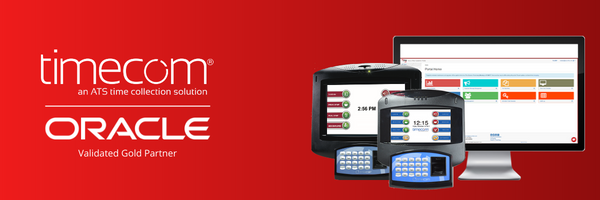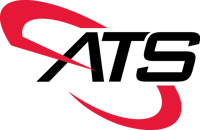If you oversee an IT team in a company using Oracle Time and Labor as your HCM software, your role in selecting the employee time clock is crucial.
Joining the selection process early helps you learn what various time clock companies offer and lets you influence the purchasing decision.
The right time clocks are easy to manage. They help you get the most out of your time tracking system and your Oracle Time and Labor software.
Using the wrong time clocks for Oracle or working with the wrong clock partner can slow down your team. This can reduce the value of your time and attendance and Oracle systems.
Here are seven critical questions you need to ask before choosing a time clock for your Oracle system.

-
What’s the time clock company’s integration expertise?
Don’t be a test subject of a company that doesn’t have experience integrating their time clocks with Oracle Time and Labor. Look for time clock companies that partner with major workforce systems. Partnering with a reputable time clock company prepares your IT team to manage your time clock deployments. Timecom, our time tracking system, is certified by Oracle, which means we ensure a smooth integration experience.
Partnering with a time clock vendor with expertise in integrating their time clock app and two-way communication middleware with Oracle environments is essential.
The vendor should do more than just integrate. They should offer customizable features like meal breaks and the ability to request time off directly at the clock. This flexibility addresses current business needs while adapting effortlessly to future requirements.
-
What data can the employee time clock share?
Can the employee time clock collect the data your payroll process, HR, and other business units need?
If it can’t, your team will bear the brunt of their frustration. As a participant in your organization’s decision committee, you should ensure it assesses the:
- time clocks' functionality with Oracle
- compatibility of the clocks’ workflows, and
- support options that prepare your team to deal with any circumstances.
If your company wants to collect more data than employee work hours, ask about other data points during the selection process. ATS can customize TimeCom to:
- Collect location data automatically, which payroll can use to comply with local labor and tax laws.
- Allow employees to enter their total tips earned when they punch out of their shift.
You also want to clarify what data flows are bi-directional with Oracle and what data lists, such as departments you’ll need hard coded into the time clock.

-
How easy is the deployment process?
Every time clock deployment should be effortless. Your IT team will be responsible for the efficiency of your time clock deployment and the integrity of the integration process with Oracle.
When you partner with TimeCom, all ATS clocks arrive fully customized. Most of our clients use their facilities team to install ATS terminals, which only require power and network connections. With that plug and play, they’re ready to track time.
A company can always use ATS’s team to install and connect its terminals.

-
What happens when power or connectivity is lost?
You know this will happen. It won’t be IT’s fault, but it may be your team’s responsibility to fix.
Some employee time clocks, like ATS’s terminals, continue to track employee time in these circumstances. Employees can clock in and out like normal and the data is stored on the clock.
After power and connectivity are back, the ATS time clock sends the data to your Oracle system through the network. This helps minimize the effect on reporting and workflows that rely on attendance data.
-
How are the clocks updated?
One of your team’s primary responsibilities is managing and implementing updates to the time clock software while maintaining compatibility with Oracle. Choose a company with cloud-based time clocks that update all the clocks for you.
TimeCom provides managed services using ATS-hosted middleware to handle operating system and software updates. Our support team coordinates directly with you and your IT team to minimize disruptions of the update process. The process also ensures that all your clocks are always operating on the latest version.
-
How much visibility will the IT team have into the time clocks?
Find out whether the clocks your company is considering come with tools that monitor them in real time.
Monitoring tools help IT teams check if integrations are working well or if a clock has issues. ClockWatch™ gives your team direct visibility and control to manage time clocks and user accounts.
Having this visibility reduces detection and response time.
-
What type of support does the employee time clock vendor provide?
Prompt support and value-added services are crucial for uninterrupted operations.
- If a time clock gets damaged, how quickly can you get it replaced?
- Can your team resolve the most common issues?
- How easy is it to contact vendor support?
With TimeCom, your team can contact ATS support directly through the TimeCom monitor application. This direct communication channel helps you minimize downtime and provides continuous support for your Oracle-integrated time tracking system.
Streamlined Clock Integration and Management
Getting clear answers to these questions helps your team choose the right terminals for your company's goals and IT needs.
ATS offers time clocks for Oracle and Workday that meet these criteria and more. Contact us today to learn about our certified integrated solutions.

"While ATS is passionate about time and attendance and excited to support organizations navigate workforce dynamics around timekeeping, we recommend you reach out to your country, regional and/or local HR chapter for more information on common workplace advice and procedures."






